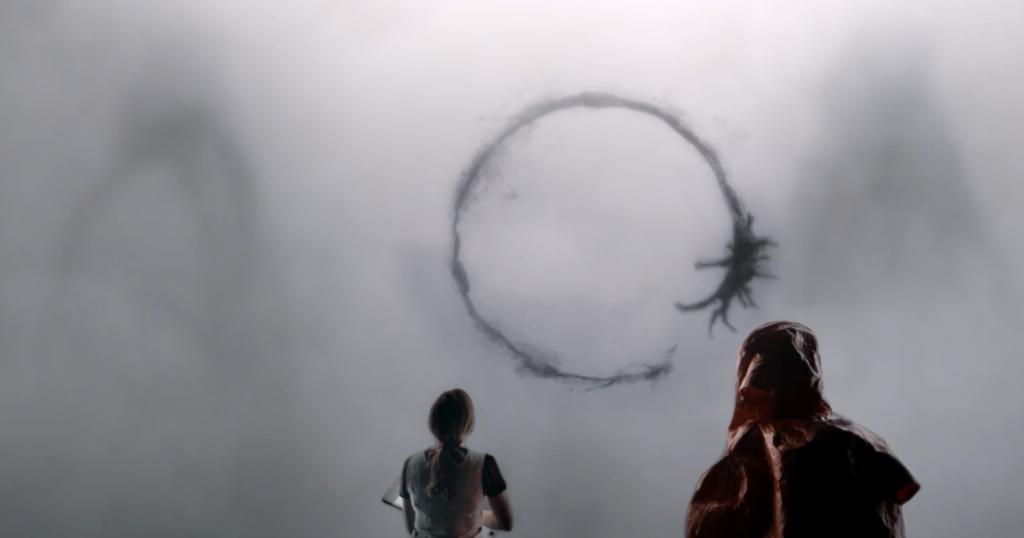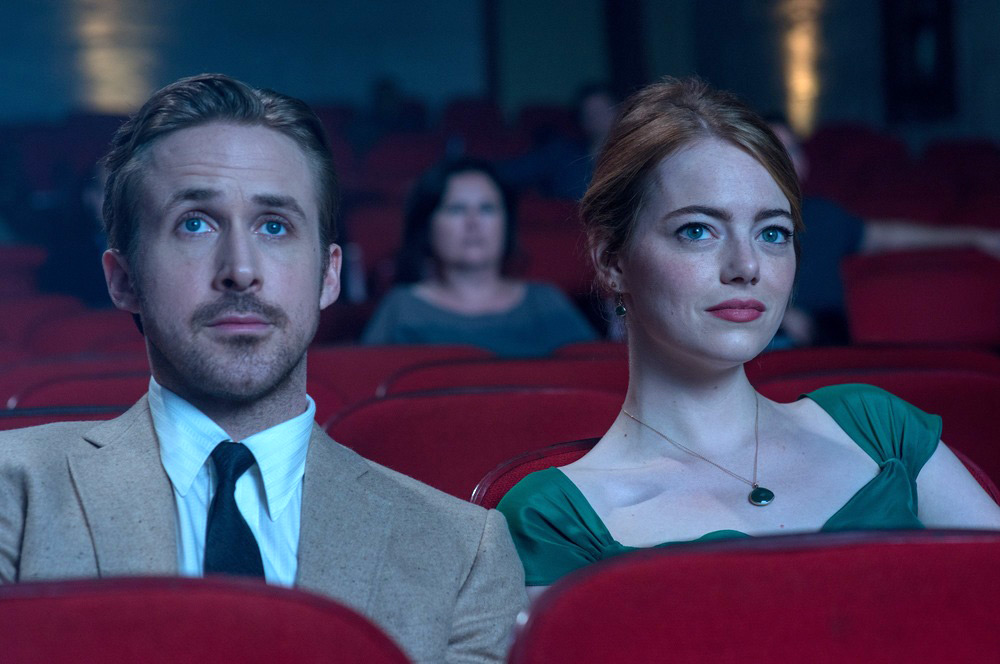Alex writes about how expectations have affected the way various recent films have been received.

There are myriad disconnects between myself and the casual movie-going audience – from where to sit in a theatre to my absolute insistence that frozen yogurt is a terrible movie snack – but the most profound difference seems to play on the idea of seeing something unexpected happen in a movie. This is not a particularly surprising disconnect; people that watch more movies than the average person are going to be more excited when something strays from the formulae they consume constantly. And this chasm will only continue to grow, since modern popular filmmaking seems to be built almost exclusively around giving us new versions of things we used to love.
When Rogue One: A Star Wars Story came out, Star Wars fans were enraptured. A friend of mine cautiously referred to the film as his favourite of the various Star Wars stories, a statement I don’t necessarily think is ludicrous. I saw Rogue One myself a handful of days later and enjoyed it: the action seemed to be structured in an uncommonly back-loaded way, allowing the first half to adequately set up stakes that would make the eventual action more interesting. And while Felicity Jones seemed to be putting in her entry for 2016’s “DO YOU HATE THIS?!!?” honourary Harrison Ford award for a lackadaisical performance in a science-fiction film, the (human) performances were generally quite good. When the film ended, I was satisfied. All in all, watching Rogue One was a totally reasonable way to spend a Tuesday morning while hopped up on cold meds.
When I first saw Arrival back in September, I was enthused. For all the reasons people have pointed to in the months since its release, the film is very, very good. Walking out of screening in a 1300 seat theatre filled to capacity, there was a hushed haze among the audience. People were quietly trying to suss out the order of events, the meaning of others, and whether Forest Whitaker is a good actor (or if he’s just tall).
(Now, obviously, Arrival was released to the general public in November, so me casually mentioning seeing it in September makes me the metaphorical Agent Halpern of this story. But I have seen myriad early screenings where the audience reaction does not in any way represent how the public ends up feeling, so it’s important to mention the detail here. When you’ve seen The Cobbler in a theatre that gives the film a standing ovation, you understand that environment is not always trustworthy.)
When it was released to the public in November, I saw Arrival again – this time in a theatre I have casually referred to as “Toronto’s hellmouth” for the patrons’ consistent abilities to annoy the shit out of normal, good human beings – with a crowd operating at a pre-screening volume that could only be described as ‘worrying.’ This continued through the Paramount logo, where worrying upgraded to ‘frightening.’ And then that prologue to the film (or epilogue to the story) started, and Max Richter’s music played, and Amy Adams gave a voiceover monologue that shut everybody the fuck up posthaste. It was glorious. After the movie ended, the same effect had taken hold of the crowd that had in September: people around me turned to their neighbours and discussed what they had seen. Giant spider dreams were discussed, and people tried to figure out whether they would actually be on Louise’s side if this actually happened. Even the ethical quandary of not telling Jeremy Renner that big secret before you make a baby with him was bandied about*. One thing that seemed certain was that the majority of this audience could not have adequately predicted what they were about to watch 116 minutes ago, because they went to see a movie about an alien invasion that ended up featuring about thirty seconds of a physical struggle between humans and heptapods.
*This is the most under-discussed element of Arrival. Is Ian wrong for (eventually) leaving Louise and Hannah when Louise tells him a truth she knew before they ever committed to having a child? Probably not. Louise made a decision for him, and when he found out, he disagreed with her choice, which is a totally reasonable reaction to have. The movie doesn’t vilify him, but it also doesn’t fully explore his side of things. (Which is fine, because this is a movie from Louise’s perspective but, again, it is a detail that bears mentioning.)
One of the best film-going stories I have ever heard came from a former co-worker of mine. As somebody who was a touch older than me, he was present for the inception of Star Wars’ effect on movie culture. When The Empire Strikes Back hit theatres in 1980, he was there on opening day. Since this was 1980 and the multiplex was not yet omnipresent, a more youthful version of my future coworker was waiting on line to be let into his screening. When the previous screening let out, he recalled noticing a group of people walking out with baffled, distraught looks on their faces. They kept quiet, though, so the secret remained unbeknownst to our story’s hero. A couple hours later, my friend had learned that Darth Vader was Luke Skywalker’s father, and proceeded to walk past the line for the next screening (in his words) “gob smacked” by the surprise.
Now, I am recalling a story told to me in a video store in 2004, about something that happened out front of a movie theatre in 1980. Is there a natural sprinkling of hyperbole added to this story added by the decades of re-telling? Of course. But I know the person that told me, and I trust that at the core of his story lies truth. People were surprised by the reveal in The Empire Strikes Back, and those people needed a little bit of time to process the idea that Star Wars’ equivalent of Jesus was fathered by a person they had spent the previous three years believing was the space devil.
Are there unexpected elements in Rogue One? Yes, which is why I liked it more than The Force Awakens, a very okay filmmaking equivalent of JJ Abrams’ adult colouring book. Is it reasonable to expect every movie to surprise me? No, because you need the formula to be able to see what breaks away from it. Do I anticipate the next Star Wars movie will be a legitimately good film? Yes, because I hold Rian Johnson in high esteem and trust that even the Disney machine can’t quash his considerable filmmaking skills entirely. And whatever he throws at us, culture will happily accept, because that’s what we do with anything draped in the Star Wars name now.
The important question is not whether culture will be able to accept left turns taken by successful franchises; everybody will see those movies anyway, and the legions of nerds will use the sheer force of their nostalgic will to ensure these films are remembered positively. The problem does not lie within Star Wars itself (or Marvel, or DC, or Fivetastic Beasts and Whatever that Franchise Is) but with the problems its viewers have straying outside of their comfort zone. Arrival’s success is heartening, but even its manipulation of expectations is built around a well-worn knowledge of genre.
Now, this is not an argument in favour of putting interesting twists in every movie, despite the fact that it currently reads like that. The easiest way to surprise a lot of people is to throw a paternal reveal in toward the end; it’s the same reason Maury and Jerry Springer and Jenny Jones were somehow temporarily irresistible to culture for a period. What I have cited above are simply the easiest examples of moments in films that caught a lot of people off guard, moments that said people felt compelled to discuss after the film ended. There’s an important combination that the filmmakers must get right to pull this off: they have to make a good film, and they also have to truly surprise the viewers with a thoughtful, plot-related surprise. The former is hard enough to accomplish without having to worry about the latter.
If every movie had a surprising twist, it would be boring. It would transport us back to the late 1990s, when Ashley Judd never quite knew who was the villain until right before she shared a romantic yacht dinner with him. (You can also insert an easy M. Night Shyamalan joke here if you prefer your references to be predictable and hacky.) Twists become boring, but subtle surprises can be accomplished frequently without becoming grating. Whether or not viewers are willing to accept them is a different story.
There are myriad films this year – as there are every year – where expectations have negatively affected a viewer’s opinion of the film. One non-fan of Arrival I know mentioned he didn’t like it because, “It wasn’t what [he] expected,” which is the most egregious (and conveniently easy to plug in for my sake) example of this mindset. In contrast, Moonlight’s storytelling device of having three different actors play Chiron at different points in his life accentuates that the makers of that film found a better way to sell us this idea than The Place Beyond the Pines did with a similar idea upon its release in 2013. The latest offender of subtle expectation aversion seems to be La La Land, a movie I have had a handful of conversations about, with each person having different complaints. (I recognize critics have gone crazy for this movie, and everybody I have talked to has generally liked it, but there are still many qualifications to be had.)
“They’re not as smooth as Gene Kelly,” said many.
“They can’t sing,” said pretty much everybody.
“John Legend looks like an adult baby and that’s odd to me,” said one.
All of these things are true (although, admittedly, the third is unimportant for my purposes here). La La Land is a movie about being nostalgic for things that no longer exist: studio musicals, performers that made their name in such musicals, and (by the end of the film) a relationship that didn’t quite work out as planned. It is a movie about constantly realizing how things will never be how you have them in your memory, and making do with the idea that the world is not entirely under your control. While Ryan Gosling and Emma Stone are each able to have some equivalent of a happy ending, the idea is that they didn’t quite get everything, because you never can*.
*Jackie is about a different version of the same thing, but I have already written about that.
The one consistent truth of modernity is that nothing in the world is going to end up being what is expected. Whether or not this has always been the case (although, for the record, it has been), what has ballooned is the common person’s inability to anticipate that things will not end how one can predict. This goes back to Tim Tebow’s weird run as a successful NFL quarterback in Denver, and the Linsanity that occurred in the NBA weeks later; maybe things like this happened before, but that these things were occurring in late 2011 and early 2012 meant that there was a social media platform to discuss (and exaggerate and racially and/or religiously inflame) them instantly. By the time the story was done being told, this thing we dubbed a once in a lifetime occurrence had happened twice. This has (obviously) not stopped, nor (obviously) will it. And while both of those examples are in the language of sports, you’re smart enough to know I am not merely discussing the coming NFL conference championships.
Thinking you can anticipate what will happen in real life is (again, obviously) the errand of an imbecile. Expecting life to occur in the order you anticipate is more dangerous, and will only lead to continued shock as a world of unpredictability continues to, in fact, be unpredictable. Assuming the world can be as you have imagined is idiotic; that is where all the trouble lies.






